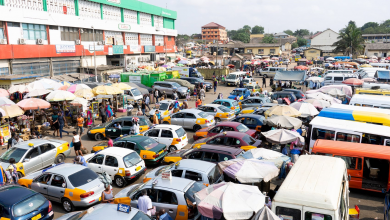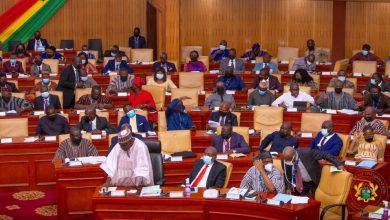World Vision Ghana Empowers GWJN And M-CODe Members to Enhance Reportage on WASH Activities
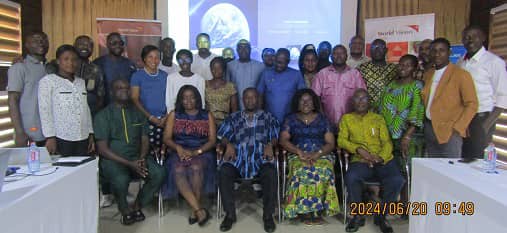
On June 20, 2024, World Vision Ghana brought together members of the Ghana WASH Journalists Network (GWJN) and Media Coalition against Open Defecation (M-CODe) to focus on WASH activities.
This workshop was meticulously designed to sharpen journalists’ reporting on WASH activities, especially those impacting children, and to equip them with the latest international best practices and global developments.
World Vision Ghana’s Technical Coordinator, Mr. Yaw Atta Arhin, stressed the organization’s commitment to realizing a full life for every child within the framework of the World Vision Global Partnership.
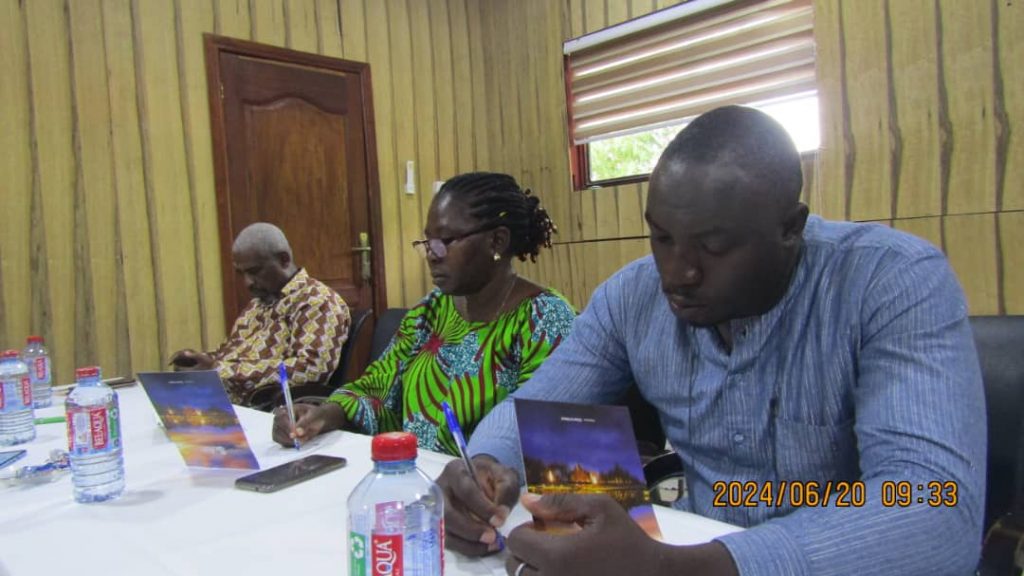
He emphasized the crucial role of sustainable water sanitation and hygiene services in ensuring the well-being of children and families.
World Vision Ghana regards these services as fundamental catalysts for socioeconomic development and prioritizes them accordingly.
Mr. Arhin highlighted the organization’s core value of partnership and its collaboration with organizations and individuals dedicated to supporting children’s well-being.
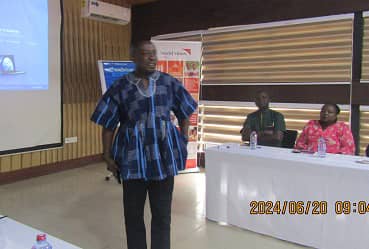
He also underscored the media’s potential as a powerful agent for societal change and transformation.
Mr. Arhin called on the media to support the organization’s policy engagements and activities to accelerate the delivery of essential services.
World Vision’s impact is widespread, having supported 100,000,000 people across 100 countries, with 50,000 staff and volunteers, and 10,000,000 supporters.
The organization is dedicated to Christian relief, development, and advocacy efforts aimed at empowering children, families, and communities to overcome poverty and injustice.
During the training session, Mr. Justice Lee Adoboe, National Coordinator for the Ghana WASH Journalists Network (GWJN), underscored the ongoing need for journalists to continuously refine their skills to effectively serve their role as media professionals.
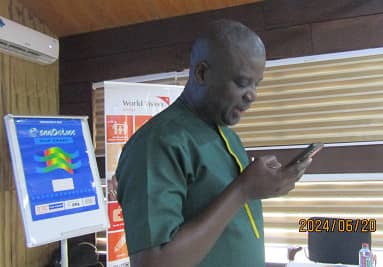
He expressed gratitude for the partnership with WVG, highlighting its potential to significantly enhance the capacity of WASH journalists and to advocate for universal access to improved sanitation, contributing to the achievement of SDG-6 targets.
Members of GWJN and M-CODe expressed their appreciation to World Vision Ghana for incorporating capacity building into their partnership.
Madam Sandra Boakye, the Executive Director of “Inspire Her”, indicated that Menstrual Health is central to the achievement of SDGs including Good Health and Well-being, Quality Education, Gender Equality, Clean Water and Sanitation, Reduced Inequality, and No Poverty.
She said Menstruation is not only stigmatized but has become a factor for social exclusion and vulnerability for girls and women.
In addition, the need for inclusivity in menstrual health education, particularly for Persons With Disabilities (PWDs), is evident, with current educational materials not tailored to accommodate the needs of the blind and deaf.
Madam Boakye also expressed deep concerns about period poverty among PWDs and underscored the importance of integrating tailored components for them in educational programs.
Lack of comprehensive menstrual health information and education perpetuates myths, taboos, and stigmatization surrounding menstruation approximately 60-90 percent of girls feel shameful about menstruation.
Furthermore, 69% of girls demonstrate poor knowledge of menstrual hygiene practices Period Poverty is endemic.
Madam Boakye continued that, according to PMA 2020, 35% of Ghanaian women do not have resources to manage their menstruation (PERIOD POVERTY) whereas 21.3% of women in rural areas use clothes compared to 4.2% in urban areas 26% of girls in rural areas of Ghana use rags, papers, leaves among others to collect their menstrual flow.
The Executive Director of “Inspire Her”, stated that 414 Teenage girls were impregnated while exchanging sex for a sanitary pad in 26 out of 228 districts in Ghana- GSS 20.
“From the time of her first cycle to menopause, the average woman will have around 450 periods in her lifetime, summing up to around 10 years or about 3,500 days of the average woman’s life that will be spent menstruating, whereas, in an average woman’s lifetime, she is expected to use 11,000 sanitary pads.
Madam Sandra Boakye, the Executive Director of “Inspire Her,” asserted the paramount importance of menstrual health in achieving SDGs and underscored the urgent imperative for a Comprehensive National Policy for Menstrual Health in Ghana.
Author: Benjamin Bray



